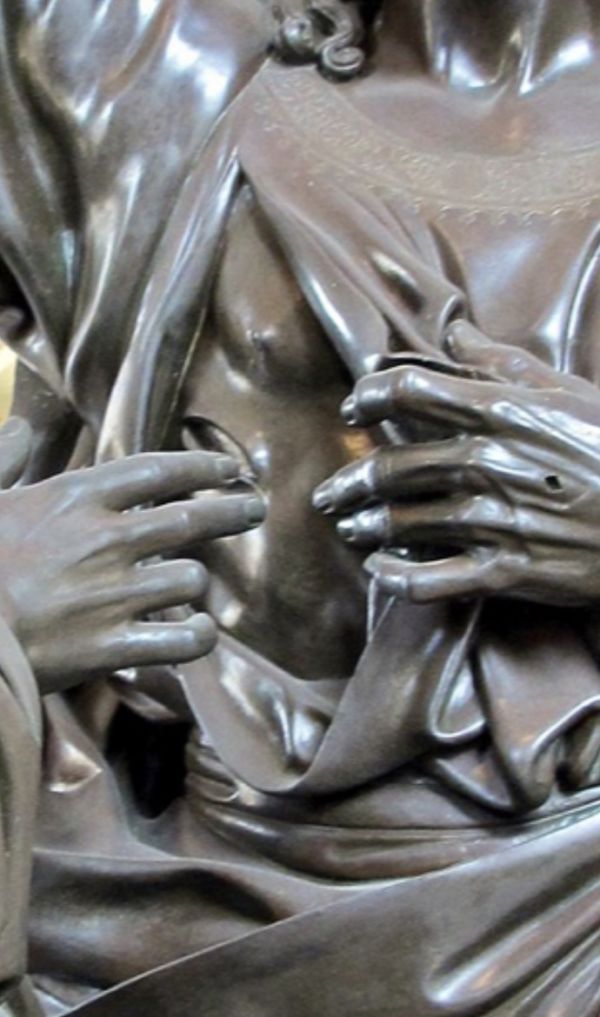Victory of the Risen Lord, without hysteria
(Jn 20:24-29)
The Gospel passage has a liturgical flavour, but the question we glimpse in the watermark is crude. We too want «to see Him».
How to believe without having seen?
It is the most common question starting from the third generation of believers, who not only hadn’t known the Apostles, but many of them not even subsequent pupils.
In particular: how do we go from «seeing»… to «believing» in a defeated, even subjected to torture?
There is an authentic Church, but held together by fear (v.19).
Not only because the arrest warrant always hangs over the real witnesses.
Also out of fear of confrontation with the world, or inability to dialogue.
Thomas is not afraid to stand outside the barred doors.
He does not withdraw into himself; he does not dread the encounter, the confrontation with life that pulsates and comes.
In this sense he is «said to be the twin» [δίδυμο] of each one - and of Jesus.
Our context resembles that of the Johannine realities of Asia Minor, lost in the immensity of the Roman Empire; small churches sometimes seduced by its attractions.
Ephesus in particular had hundreds of thousands of inhabitants. Commercial emporium, banking center and major cosmopolitan city [whose centerpiece was of course the great Temple of Artemis - wonder of the ancient world] was the fourth city of the empire.
Distractions were many.
And already from the first generations of faithful the routine began to take over: the fervor of the beginnings was dying out; participation became sporadic.
Under Domitian, believers suffered social marginalization, discrimination.
Even today, one of the decisive elements of the ability to manifest the Risen One Present remains the direct encounter with sisters and brothers, within a living fraternity.
People who welcome surprises and encourage the ability to think and debate; who are themselves and make others breathe.
Women and men who spend their material resources and wisdom, according to particular history and sensitivity.
Where each one as he is and where is - real in the round, not dissociated from himself - becomes food for others with the crumbs he has.
Here then is the «recognize»: it’s a question not of obedience to an abstract world, but of personal Likeness.
It’s a matter of attuning the “physiognomy” and our small «actions» with the Source of Love consumed to the end [our «finger» and its «Hands»; our «hand» and his «pierced Side»].
Even with our limitation, 'by entering into the wounds'. And by attraction, Faith will spring forth spontaneously (v.28).
Thus (vv.29-31 and 21:25) Jn invites each one to write his own personal Gospel.
When our works are at least a little the same as Christ's, everyone will ‘see’ Him.
So is there any evidence that Jesus lives?
Of course. He concretely manifests Himself in an assembly of non-conformist people, who are themselves; endowed with the capacity for autonomous thinking skills.
«Twins» of Him and of Thomas.
People Free to live in the world; outside locked doors - to listening, descending, serving.
And doing it with conviction: personally, without forcing or hysteria.
We too want to «see» Him.
[St. Thomas the Apostle, July 3rd]












